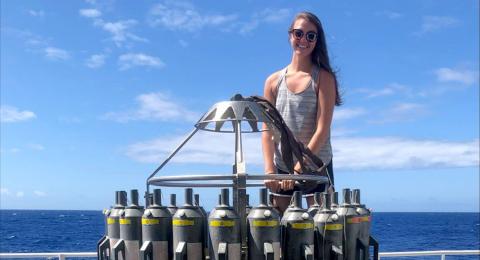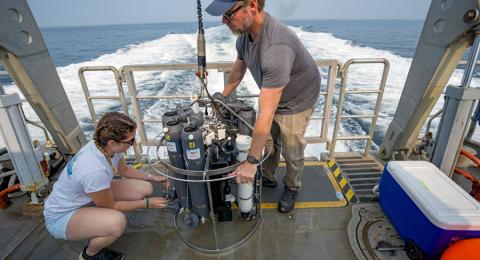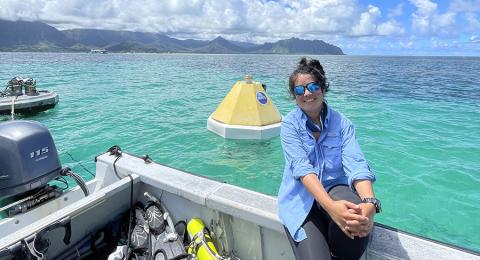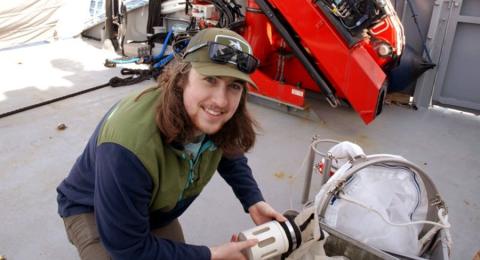OPAL works with graduate students who have conducted research in estuaries and oceans here in New England, but also spanning the globe to South America, the South Pacific, the Atlantic, the Gulf of Mexico, and Antarctica. Compelling issues associated with the ocean's response to climate dynamics and fishing pressures, along with many new inwater and satellite technologies are leading to exciting new opportunities to tailor research in collaboration with OPAL scientists.
Study and research at UNH within both EOS and the UNH School of Marine Science and Ocean Engineering provides students with access to a broad range of Earth system expertise and we work to foster an environment where interdisciplinary approaches to problem solving are encouraged. OPAL faculty teach and advise within the Earth Science and Oceanography programs and we also work with students across a range of disciplines including engineering, mathematics and computer science.





